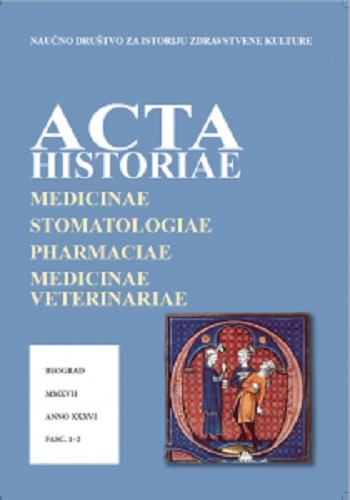Salazarism, Motherhood and Child Healthcare: Ideology and Public Policies
Salazarism, Motherhood and Child Healthcare: Ideology and Public Policies
Author(s): Andreia da Silva AlmeidaSubject(s): Comparative history, Health and medicine and law
Published by: Naučno društvo za istoriju zdravstvene kulture
Keywords: maternal mortality; Portugal; health care sector; health policy; child mortality
Summary/Abstract: During Salazar’s Estado Novo, Portuguese health policies were a reflex of general policies of the dictatorial regime. The crisis during World War II and the 1958’s electoral storm, improved the development of the state’s health sector. However, in the mother and child healthcare field, the regime’s ideology was not consistent with its political practice. Ideologically, the Estado Novo assumed a natalist, conservative and catholic position, condemned abortion, contraception and the woman’s work outside the home. The Portuguese women, single or married, should be confined to domestic work. For moral and economic reasons, the regime defended home birth, in a minimalist conception of healthcare. Medically assisted births, in hospitals, were mainly provided to mothers for families of low income or problematic births. This self– proclaimed family defender, Salazar’s Estado Novo revealed a considerable disinterest and lack of investment in mother and child healthcare, evidenced by statistical and budgetary sources. Both the lack of interest and policies are, also, documented by the high child and maternal mortality rates, two of the highest European indicators at this level. In fact, the health sector was always depending on donations for charity and private organizations, although the regime proclaimed its focus on mother and child healthcare. These political options as well as the high mortality rates attest the misleading propaganda of a family defender regime. In the sixties, political, social and mentality changes, that occurred in Portugal, forced a more dominant position of the state in the health sector. However, the state’srole in mother and child healthcare sector remained poor. Mother and child healthcare still depending on private institutions, essentially from charity.
Journal: Acta historiae medicinae, stomatologiae, pharmaciae, medicinae veterinariae
- Issue Year: 2017
- Issue No: 36
- Page Range: 111-128
- Page Count: 18
- Language: English

